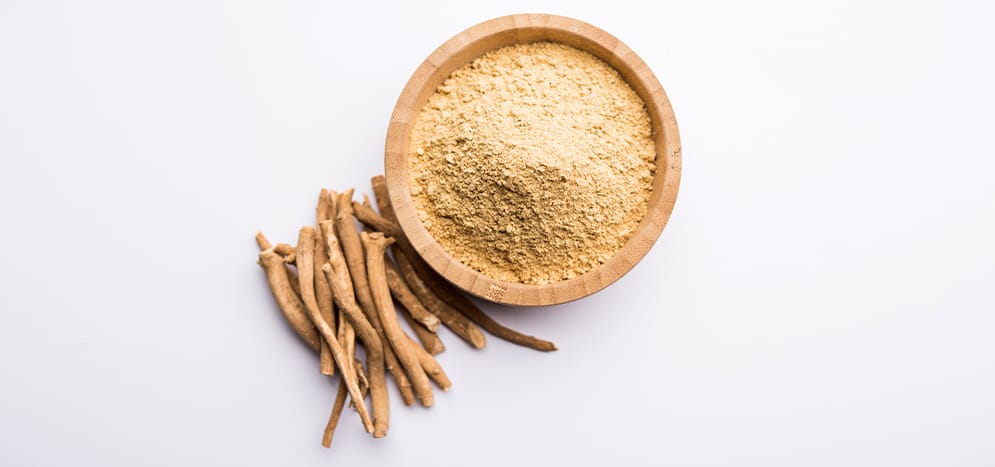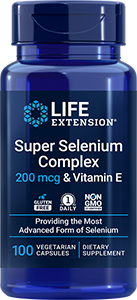
Newsletter
Newsletter
Ashwagandha supplementation associated with improved sleep, alertness, quality of life

May 5, 2020
A randomized, double-blind prospective trial published on February 23, 2020 in the journal Cureus found improvement in sleep, alertness and quality of life among older men and women treated with the herb ashwagandha.
Ashwagandha is one of the most important herbs used in Ayurveda, the traditional medicine system of India. Ashwagandha is often thought of as supporting general well-being and rejuvenation and may therefore be helpful to aging individuals. It has been found to increase testosterone levels and lower cortisol levels in humans, lengthen the life of roundworms and increase the activity of telomerase (an enzyme that lengthens telomeres, protective genetic material that caps and protects the ends of chromosomes) in cell cultures.
“Ashwagandha, scientifically known as Withania somnifera, commonly known as Indian ginseng or winter cherry is one of the most revered herbs of Ayurveda,” Sunil B. Kelgane and his associates wrote. “Over centuries, this herb has been used as a ‘rasayana’ or rejuvenator and aided in promoting health and longevity.”
The trial included 50 men and women between the ages of 65 to 80 years. Half of the group received ashwagandha root extract twice per day and the remainder received a placebo for 12 weeks. Quality of life, daytime sleepiness, sleep quality and mental alertness upon rising were evaluated at the beginning of the trial, at four and eight weeks and at the end of the treatment period.
Quality of life, including global, physical, psychological, social and environmental aspects, significantly improved from baseline levels among the group that received ashwagandha. In comparison with the placebo, sleep quality and mental alertness improved in the ashwagandha-treated group. Ashwagandha was well tolerated and reported as safe and beneficial by those who received it.
“The outcome of the present study suggests significant improvement of sleep condition, mental alertness and quality of life in elderly participants who received ashwagandha root extract in comparison to those who took a placebo,” the authors concluded. “Therefore, ashwagandha root extract could be an acceptable and admirable alternative supplement in improving various age-related health issues and may boost overall general well-being in an elderly person.”
Products
Apply What You’ve Learned: Ashwagandha
- The Ayurvedic herbal therapy ashwagandha is known as an adaptogen due to its ability to support the body’s ability to manage stress.
- Among many positive effects revealed in studies involving ashwagandha is improvement of aspects of sexual function in men and women.1,2
- Ashwagandha has an antioxidant effect, even in the brain.3
- Consistent with its traditional use as a rejuvenator among aging individuals, ashwagandha was found in a randomized, double-blind trial to enhance memory among people with mild cognitive impairment.4
References
-
Ambiye VR et al. Evid Based Complement Alternat Med. 2013;2013:571420.
-
Dongre S et al. Biomed Res Int. 2015;2015:284154.
-
Birla H et al. Behav Brain Funct. 2019 May 7;15(1):9.
-
Choudhary D et al. J Diet Suppl. 2017 Nov 2;14(6):599-612.
Heart Health Supplement Guide
By answering a few simple questions, we will help you choose our best heart health supplements that are right for you.
What's Hot
Health Concern
Youth drug mimetics discovered
An article appearing on November 15, 2017 in the journal Aging announced the discovery of naturally occurring compounds that mimic the anticancer and antiaging effects of the prescription drugs metformin and rapamycin. Metformin is commonly used to treat type 2 diabetes and rapamycin is used by organ transplant recipients to prevent rejection.
Insomnia
Insomnia is a fairly common sleep disorder, affecting approximately 10% of Americans. Insomnia can involve the inability to fall asleep (onset insomnia) or stay asleep (maintenance insomnia). Sleep deficiency can not only significantly diminish quality of life, but may also increase risk of multiple health problems such as anxiety, cardiovascular disease, and obesity.
Related Life Extension Magazine® Articles
Life Extension Magazine®
A blend of cacao seed extracts and pomegranate increased free testosterone by 48% in a human study. A separate clinical trial showed a bioavailable form of luteolin boosted free testosterone by 22%.
The latest news on aging, nutrition, and vitamins
- Probiotics and Antidepressants: Do They Work Together Through the Gut-Brain Axis?
- Fruits and Vegetables May Improve Sleep Quality, According to New Research
- Avocado Nutrition Facts: 10 Benefits for a Stronger, Healthier Body
- Can Gut Disorders and Vitamin Deficiencies Predict Alzheimer’s and Parkinson’s?









